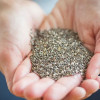Feeding babies is a topic that raises many questions among parents. Among the essential nutrients, proteins play a crucial role in the development of thechild. However, there are many preconceived ideas on the actual protein needs of infants. In this article, we will explore the true protein requirements of babies, based on recent scientific data.
- You will discover the real protein needs of a baby,
- We will compare these needs to those of adults,
- You will learn how to meet these needs in a balanced way,
- We will discuss the potential risks of excessive protein intake.
Proteins: essential but often overestimated
Proteins are undeniably crucial for the harmonious development of babies, contributing to the growth of muscles, organs, and to the proper functioning of the immune system. Fundamental element in the construction of the human body, the proteins play a key role from the first days of life. However, the common perception that babies need a large daily amount of protein is often exaggerated. In reality, the protein needs of an infant represent only a small fraction of those of adults. Concerns about insufficient intake are generally unfounded, especially when the child is fed according to nutritional recommendations.
Breast milk: the natural standard
The breast milkIs often considered the ideal food for infants, and this is not without reason. It is a source of nutrition perfectly suited to the specific needs of babies, much more balanced than many protein-rich foods introduced too early into their diet. Regarding proteins, Breast milk contains approximately 0.8 to 0.9 grams of protein per 100 ml., a percentage of protein in breast milk that is surprisingly low compared to other sources like cow's milk. However, this low concentration is perfectly suited to the infants' needs and ensures harmonious development without overloading the baby's kidneys.
One of the fascinating characteristics of breast milk is its evolution over time to meet the changing needs of the infant. During the first weeks of life, colostrum, which is rich in proteins and antibodies, is produced to give the baby an optimal start by strengthening their immune system. As the baby grows, the composition of breast milk naturally adjusts, slightly reducing the percentage of proteins while increasing the fat and carbohydrate content to support energy growth.
This adaptability of breast milk underscores its crucial role in infant nutrition and demonstrates why it is often referred to as the gold standard in baby nutrition. For parents and health educators, understanding this dynamic can help dispel misunderstandings about protein needs and encourage a diet that respects the natural needs of the baby.
Actual protein needs according to age
Understanding the protein needs of infants is essential to ensure their growth and development. According to the World Health Organization (WHO), infants have specific protein needs that vary with age. For babies aged 0 to 6 months, breast milk is the ideal source of protein, providing a daily intake of approximately 0.9 to 1 gram of protein per kilogram of body weight.. This is sufficient to meet their nutritional needs without overloading their immature kidneys.
As the child is growing, protein needs increase slightly. Between 6 and 12 months, the recommended daily intake of protein increases to approximately 1.2 grams per kilogram of body weight.. Nevertheless, it is important to remember that these needs remain modest compared to those of adults, with protein intake varying according to weight, age, and lifestyle. For comparison, an average adult needs about 0.8 grams of protein per kilogram of body weight.
It is important to remember that the quality of proteins is just as crucial as the quantity. The proteins contained in breast milk are naturally balanced and easily digestible, making it an ideal source for infants. On the other hand, An excess of proteins, particularly those of animal origin or with high nitrogen content, can overload a baby's kidneys and lead to long-term complications.
Official recommendations also emphasize the importance of gradually introducing solid foods while continuing breastfeeding, to ensure an adequate and balanced protein intake. This approach allows for the diversification of protein sources while respecting the child's physiological development.
Understanding your child's true protein needs and the most suitable sources is crucial to ensure a Healthy and balanced diet from an early age.

Protein sources suitable for babies
Ensuring your baby's protein intake is essential, but it is equally crucial to turn to suitable and balanced sources. Breastfeeding Exclusive breastfeeding, when possible, remains the ideal option during the first few months, as breast milk provides perfectly assimilable proteins, along with an incomparable richness in nutrients. However, when breastfeeding is not possible, infant formulas are designed to meet the nutritional needs of infants in a balanced and safe manner. From one year old, growth milk can then take over to complement a varied diet and support harmonious growth.
As babies grow, the gradual introduction of solid foods becomes a key step in diversifying their diet and maintaining an adequate protein intake. Plant sources, such as legume purees and fortified cereals, offer a nutritious and environmentally friendly alternative, in line with the principles ofliving food and organic. These foods, easy to digest and rich in nutrients, ideally complement your child's diet without overloading their developing system.
Plant-based proteins for babies
Opt for plant proteins in your baby's diet offers many benefits, particularly in terms of digestion and of environmental respect. Plant-based sources of protein are generally easier to digest for young people. children, which is crucial for their developing digestive systems. Additionally, they are often rich in fiber, vitamins, and minerals, thus contributing to a complete and balanced nutrition.
Foods rich in plant-based proteins
- Legumes Lentils and chickpeas are excellent choices for babies. They can be prepared in creamy purees, easy to swallow for the younger ones.
- Whole grains : The Quinoa or oats provide a combination of proteins, complex carbohydrates, and fibers.
- Dried fruits and seeds : The Almonds or the chia seeds can be integrated in the form of powders or butters, offering high nutritional density with healthy fats.
- The tiger nut is also a food rich in protein and nutrients, in the form of flakes they are perfect to incorporate into purees or soups.
Less conventional sources
For parents wishing to explore less conventional sources, the algae represent an unknown but rich source of protein. They provide essential amino acids while being low in calories and can be introduced in the form of Dehydrated powders in purees or soups.
Benefits of a Plant-Based Diet
By incorporating these varied plant sources, you can not only ensure the necessary protein intake for your baby's proper development but also offer them a varied and environmentally friendly diet. The holistic approach of prioritizing natural and organic foods from a young age sets the stage for Eating habits healthy and sustainable in the future.
Balancing protein intake
Balancing protein intake in infants is essential to ensure their health and optimal development.Food diversity plays a crucial role in this balance by providing various essential amino acids that the body cannot synthesize on its own. To ensure complete nutrition, it is important to incorporate a variety of foods into your baby's diet while respecting their specific needs.
Excessive protein consumption can pose health risks for infants. A high intake, particularly from animal sources, can overload the still immature kidneys of the child, increasing the risk of dehydration and creating nutritional imbalances. It is therefore essential to adhere to the recommended daily intakes, ensuring that your baby's diet does not contain excessively high levels of protein, and that these proteins come mainly from suitable and easily digestible sources.
The focus on plant-based sources of protein, such as legumes and grains, offers a healthy and eco-friendly alternative to diversify babies' diets.. These sources not only provide essential amino acids, but they are also rich in fiber and other nutrients beneficial for the overall development of your child.
Ultimately, adopting a balanced and vigilant approach to protein intake will not only help support your child's growth but also establish good eating habits from an early age, promoting a healthy and positive relationship with food throughout one's life.

Conclusion
In summary, it is crucial to understand that the protein needs of babies are much lower than one might think. Breast milk, with its perfectly balanced protein percentage, remains the standard for infant nutrition, adapting its composition to meet the evolving needs of the child. For those who cannot breastfeed, infant formulas offer a safe alternative. The essential thing is to ensure a sufficient protein intake through good sources, whether they come from breast milk, quality infant formula, or the first foods introduced during diversification.
Prioritizing plant-based proteins from the introduction of solid foods not only diversifies your baby's diet but also encourages a more ecological and healthy approach. A balanced diet that respects your child's natural and specific needs lays the foundation for a life with healthy eating habits.
Finally, for additional advice on raw food nutrition and tips for incorporating organic products into your daily life, consider subscribe to our newsletter. It is an excellent way to stay informed and inspired by new ideas to support healthy and sustainable growth.
Your questions and our answers (FAQ)
Why is breast milk considered the best source of protein for babies?
Breast milk is the best source of protein for babies because it contains a percentage of protein ideally suited to the nutritional needs of infants, approximately 0.8 to 0.9 grams per 100 ml. Its composition naturally evolves to adjust to the changing needs of the baby, ensuring harmonious development without overloading the kidneys.
What are the protein needs of an infant compared to those of an adult?
The protein needs of an infant are significantly lower than those of an adult. For babies aged 0 to 6 months, about 0.9 to 1 gram of protein per kilogram of body weight is sufficient. Between 6 and 12 months, this slightly increases to about 1.2 grams per kilogram of body weight. In comparison, an average adult requires about 0.8 grams of protein per kilogram.
Are there any risks associated with excess protein in babies?
Yes, an excess of protein can be problematic for babies. It can overload their immature kidneys, leading to risks of dehydration and nutritional imbalances. It is important to ensure that protein intake is in line with recommendations to avoid these complications.
What are the appropriate plant-based protein sources for babies?
Plant-based proteins are an excellent option for babies. Sources such as legumes (lentils, chickpeas), whole grains (quinoa, oats), and certain nuts and seeds (almonds, chia seeds) are rich in protein, easy to digest, and environmentally friendly.
How can I introduce proteins into my baby's diet in a balanced way?
To introduce proteins in a balanced way, it is vital to diversify food sources. Start with breast milk or infant formula, then gradually add solid foods like pureed legumes and fortified cereals. Ensure that the protein sources are suitable for your baby's age and digestion.
Are proteins overrated in baby nutrition?
Yes, there is often an overestimation of protein needs for babies. Studies show that excessive protein intake is not necessary and can even be harmful. It is crucial to focus on the appropriate quality and quantity of proteins rather than excessive consumption.


















